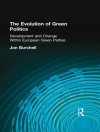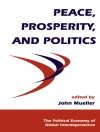In Human Rights and Participatory Politics in Southeast Asia, Catherine Renshaw recounts an extraordinary period of human rights institution-building in Southeast Asia. She begins her account in 2007, when the ten members of the Association of Southeast Asian Nations (ASEAN) signed the ASEAN charter, committing members for the first time to principles of human rights, democracy, and the rule of law. In 2009, the ASEAN Intergovernmental Commission on Human Rights was established with a mandate to uphold internationally recognized human rights standards. In 2013, the ASEAN Human Rights Declaration was adopted as a framework for human rights cooperation in the region and a mechanisim for ASEAN community building. Renshaw explains why these developments emerged when they did and assesses the impact of these institutions in the first decade of their existence.
In her examination of ASEAN, Renshaw asks how human rights can be implemented in and between states that are politically diverse—Vietnam and Laos are Communist; Brunei Darussalam is an Islamic sultanate; Myanmar is in transition from a military dictatorship; the Philippines and Indonesia are established multiparty democracies; while the remaining members are less easily defined. Renshaw cautions that ASEAN is limited in its ability to shape the practices of its members because it lacks a preponderance of democratic states. However, she concludes that, in the absence of a global legalized human rights order, the most significant practical advancements in the promotion of human rights have emerged from regional institutions such as the ASEAN.
विषयसूची
List of Abbreviations
Introduction
PART I. FOUNDATIONS: LEGITIMACY OF A REGIONAL HUMAN RIGHTS REGIME IN THE ABSENCE OF LIBERAL DEMOCRACY
Chapter 1. Democracy and Human Rights in Southeast Asia
Chapter 2. ASEAN’s Turn to Democracy and Human Rights
Chapter 3. The ASEAN Human Rights Declaration
PART II. APPLICATIONS: ASSESSING THE REGIONAL DYNAMICS OF HUMAN RIGHTS COMMITMENT AND COMPLIANCE
Chapter 4. The Rights of Women at the Global, Regional, and Local Levels
Chapter 5. Trafficking in Persons
Chapter 6. ASEAN as a Purveyor of Human Rights in Myanmar
Conclusion
Notes
Index
Acknowledgments
लेखक के बारे में
Catherine Renshaw is Associate Professor of Law and Deputy Head of the Thomas More Law School at Australian Catholic University.












